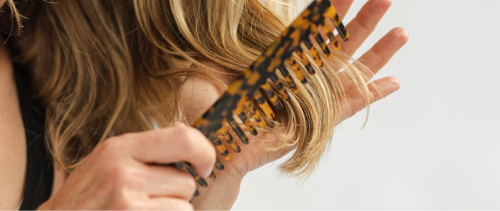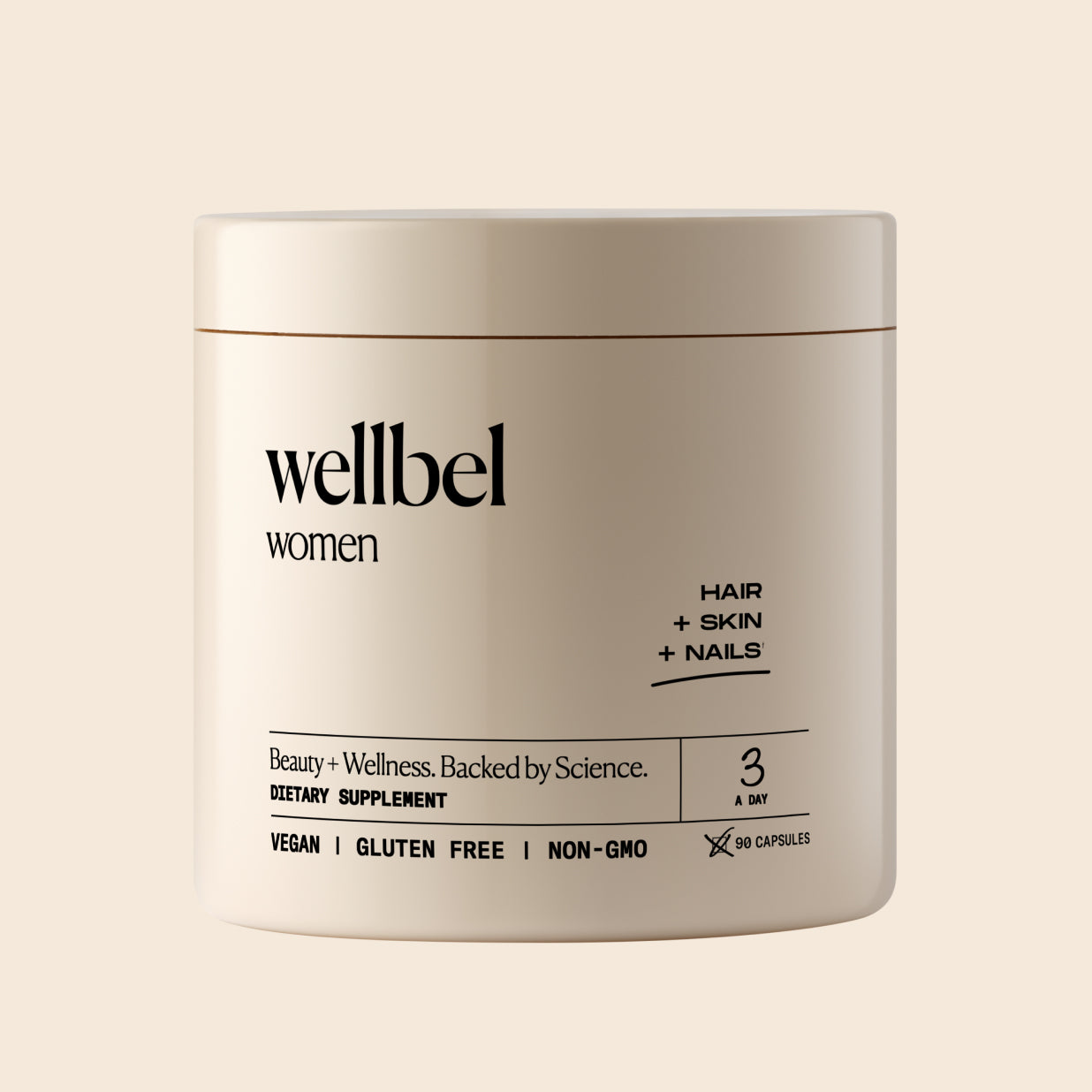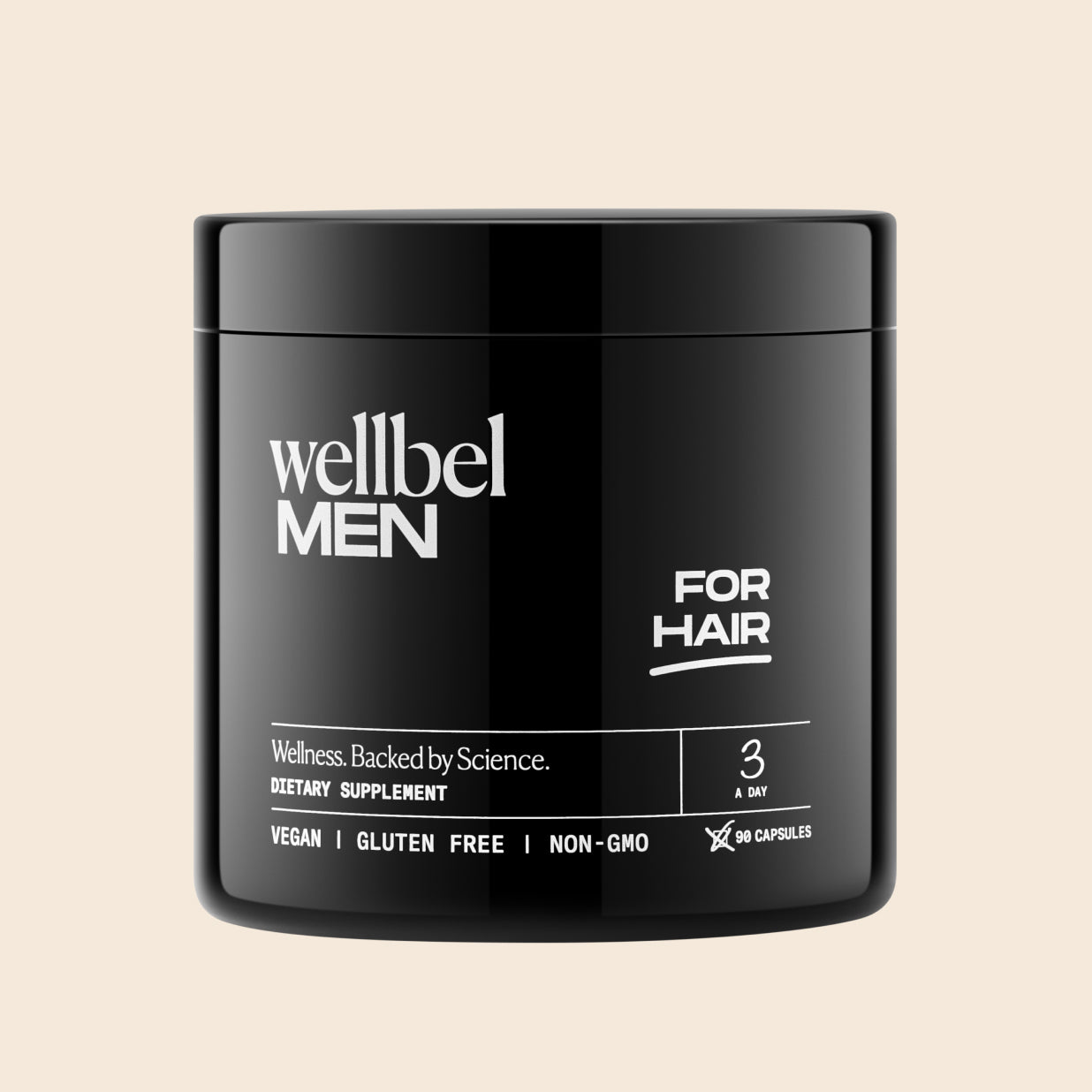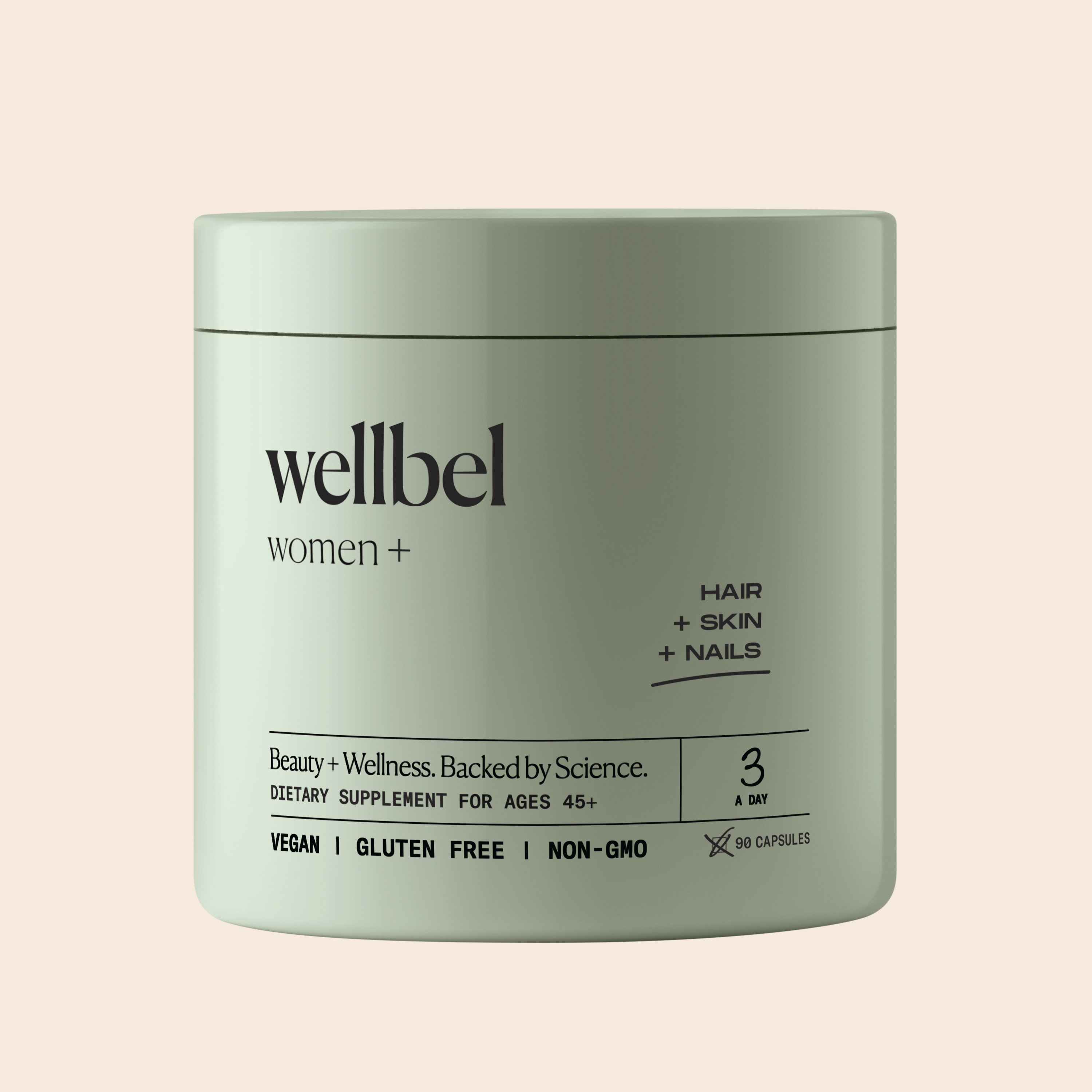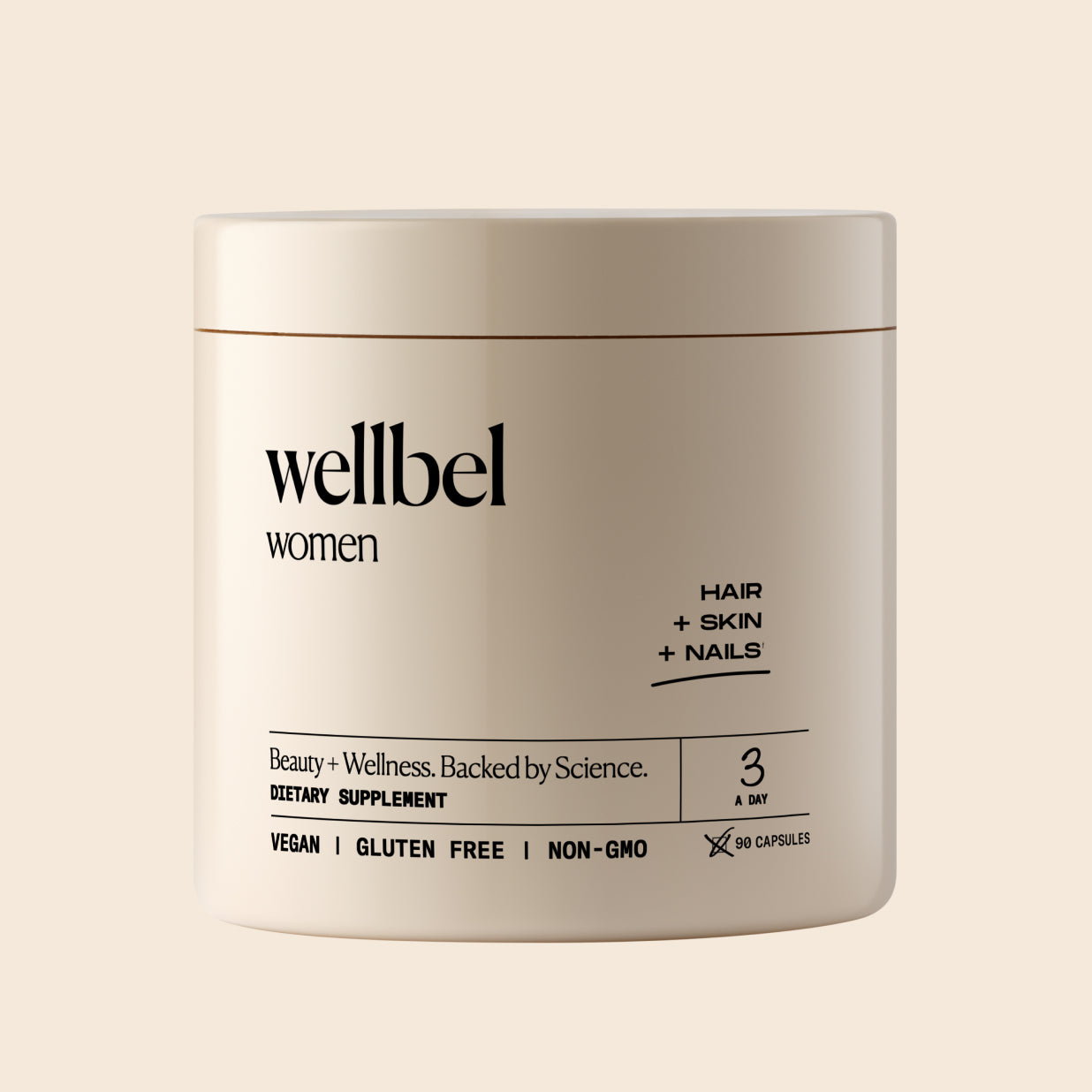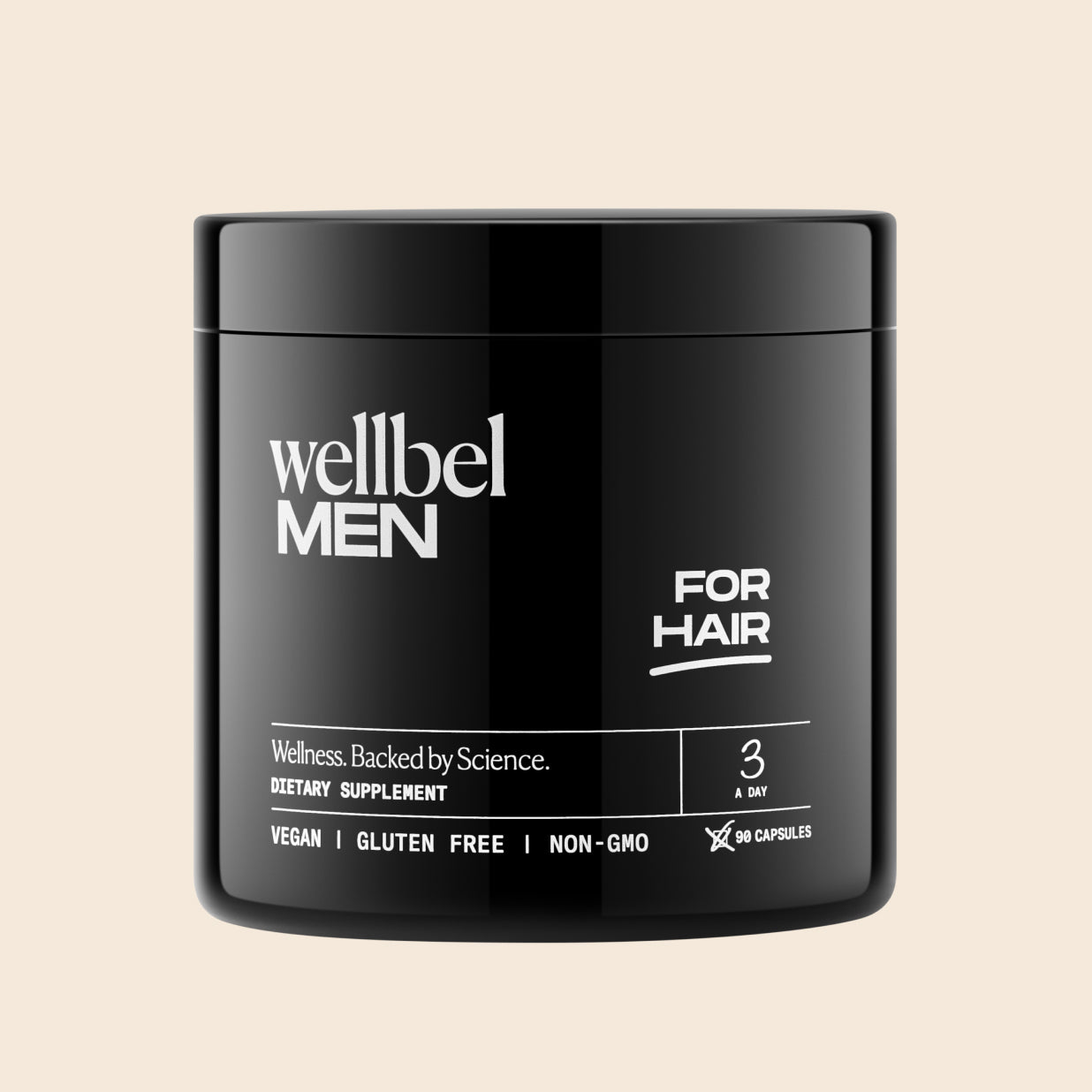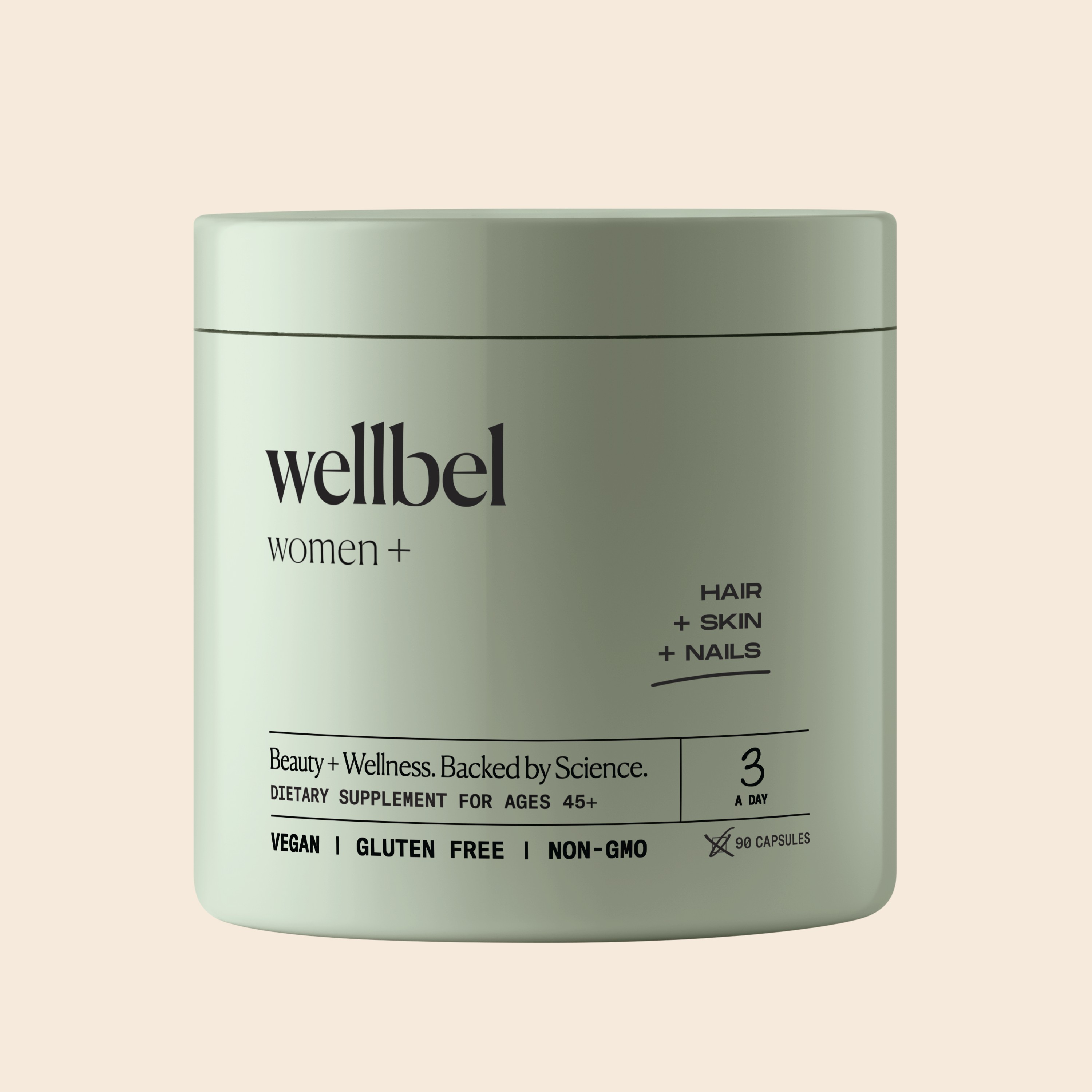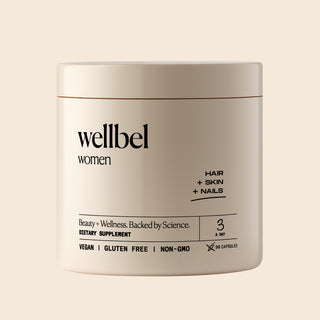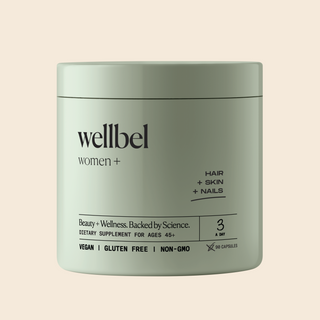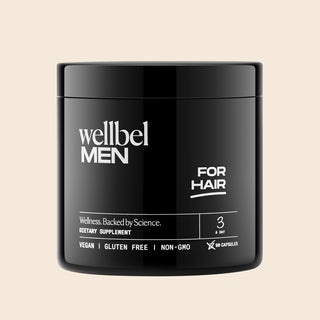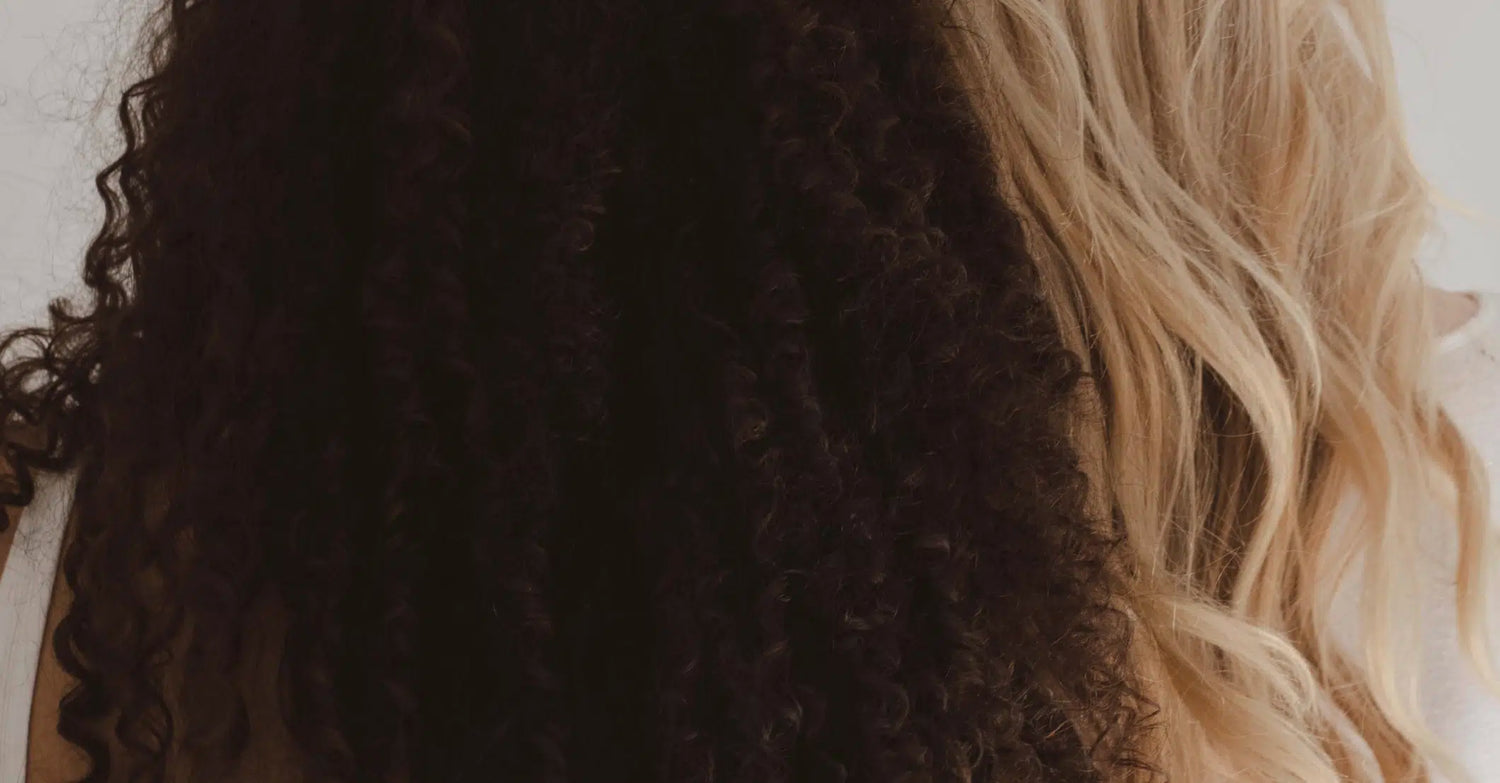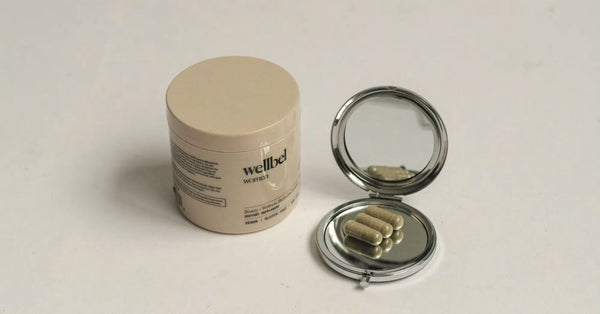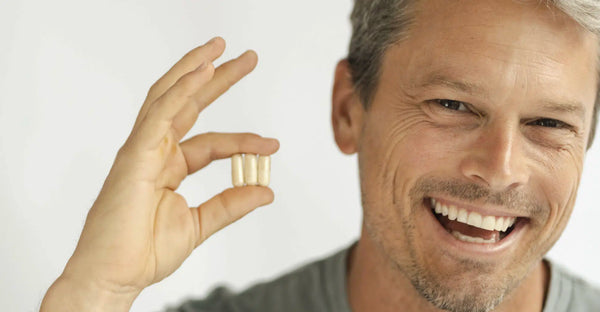If you are one of the millions of people dealing with PCOS, know this — you are not alone. PCOS is an under-discussed but widespread phenomenon, affecting up to twelve percent of Americans who have reproductive age ovaries, every year.
PCOS (polycystic ovary syndrome) can be hard to predict and can present itself with a myriad of symptoms, including hair growth in unexpected areas like the face and neck, as well as hair loss.
In fact, PCOS-related hair loss is one of the reasons Wellbel was formulated in the first place. Dr. Dan, our Medical Director and triple-board certified physician, created Wellbel in part to help his sister, Dalia, who had been dealing with PCOS and hair loss and found little success with other supplements.
So why does PCOS seem to impact hair growth so much and what can you do about it? In this blog post, we’ll break down the science and talk about some solutions that can help.
What is PCOS?
Let’s start with some basics. What is PCOS and why does it cause a hormonal imbalance?
A Hormonal Disorder
PCOS stands for polycystic ovary syndrome. Put simply, PCOS is a condition which causes the ovaries to overproduce hormones called androgens. Androgens are a group of male hormones. Now, people of all genders produce male hormones like testosterone, starting around the time they enter puberty. Cisgender men tend to produce more of them than cisgender women.
People with PCOS tend to have higher levels of testosterone than normal. As of today, we’re not totally sure why PCOS happens, but research suggests it’s related to factors like genetics and environment. People with type two diabetes are also more likely to develop PCOS.
It’s a complicated and multi-faceted condition that tends to express itself differently for different people.
PCOS and Ovarian Cysts
PCOS gets its name from one of its symptoms: small cysts formed by immature eggs, on the outer edges of the ovaries. It’s also common for people with PCOS to experience oversized and swollen ovaries.
It is important to note that not everyone who has PCOS experiences cysts.
PCOS Symptoms
To that end, the condition can look dramatically different person to person. In addition to cysts, some other pcos symptoms include…
- Irregular menstrual cycles
- Fertility issues
- Insulin resistanceAcne and excess sebum
- Weight gain
- And of course, hair loss and hair growth.
Why Does PCOS Hair Loss Happen?
On to our always favorite topic: hair. Let’s dig into the link between PCOS and hair health.
Hair Growth and Hair Loss
Our hormones have a huge impact on when and where we grow hair. It’s no coincidence that we start to grow body hair right around the time that puberty starts. Hormones and hair go hand in hand.
Because people with PCOS have higher levels of androgens like testosterone, their body hair reacts in a few different ways. It’s actually common for people to report both hair growth and hair loss related to PCOS.
Many people experience excess hair around the face and neck. Facial hair is a normal reaction to PCOS, but it can be a little jarring if you identify as a woman and have never had hair there before.
On the other hand, PCOS related hair loss is also a thing. PCOS hair loss occurs on the scalp, as testosterone and its metabolite dihydrotestosterone (DHT) shrink hair follicles and shorten the life cycle of hair production within hair follicles. As a result, people with PCOS often experience thinner hair and slower hair growth. It takes less time for hair to fall out and more time for new hair to come in.
Hair Thinning Around the Part
PCOS hair loss (known as androgenetic alopecia) usually takes some time to be noticeable. It’s not an overnight sudden loss of hair, but rather a slow and gradual process of hair thinning.
Male pattern baldness tends to occur around the hairline. A receding hairline usually follows an M formation, exposing more of the forehead. Female pattern hair loss tends to be most noticeable around the part. Women dealing with female pattern hair loss rarely go totally bald, but seeing that change in thickness can still be seriously frustrating.
What You Can Do to Address PCOS-Related Hair Loss
That brings us to solutions.
What can you do to treat hair loss related to PCOS? Kickstarting healthy hair growth can be an inexact science, and it’s a good idea for you to check in with your doctor before starting anything new. The good news is that there are a number of treatment options for PCOS hair loss.
Reset Your Hormones
To deal with hormonal imbalances, you have to work at a hormonal level. As testosterone and DHT interrupt the regular hair growth cycle, treating PCOS hair loss starts there.
In this case, there are lessons to be learned from male pattern hair loss. The most commonly prescribed solution to male pattern baldness is called finasteride. This FDA approved drug blocks the production of DHT, preventing it from shrinking hair follicles. But finasteride is not perfect; It can have unfortunate sexual side effects.
Thankfully, it’s not the only solution. Saw palmetto extract is a natural, plant-based ingredient which has been proven to inhibit the production of DHT, supporting hair regrowth. That’s just one reason why saw palmetto appears in the ingredients list in all of our supplements!
Feed Your Scalp
In addition to blocking hormones that support PCOS related hair loss, you can also ensure that your scalp is getting enough vitamins and nutrients to foster new, healthy hair.
Vitamins like vitamin D, vitamin B12, and vitamin A all play essential roles in bringing fresh oxygen to your scalp. Tissues like skin and hair rely on these nutrients to grow healthily. By making sure that you’re getting enough of them through your diet and daily supplements, you’re helping them progress as they should.
Take Care of Yourself
Last but certainly not least, remember to show your body and mind kindness as often as possible. True confidence is built from within and while we can’t always control what our body does, we can do our best to control how we talk to ourselves.
Building a healthy lifestyle can help our body function better, but it also can have positive mental effects. Take for example, something like a scalp massage. A scalp massage can be soothing and relaxing — it’s a great way to unwind after a stressful week. But that’s not all it can do. Regular scalp massages have been shown to be helpful when it comes to stimulating hair growth.
Try to build in a routine of self care which can do double duty for both your body and your mind. These two systems are powerfully connected.
A Few Last Thoughts on PCOS Hair Loss
You can’t always control hair loss, but with natural, hardworking ingredients, you can help inspire thicker and healthier hair. Everyone’s hair care journey is different and that’s just as true for people who deal with polycystic ovary syndrome.
Whether you struggle with female pattern baldness and thinning hair or more hair in places you’d rather it not be, there are solutions for dealing with PCOS and hair health. While you explore what works best for you, remember that we’re always here to answer questions or offer advice. Our community means the world to us.
Sources:
Yes, people with PCOS can lose their hair but there are multiple ways to treat it | Insider
PCOS Hair Loss: Why It Happens and What To Do About It | Health Magazine
